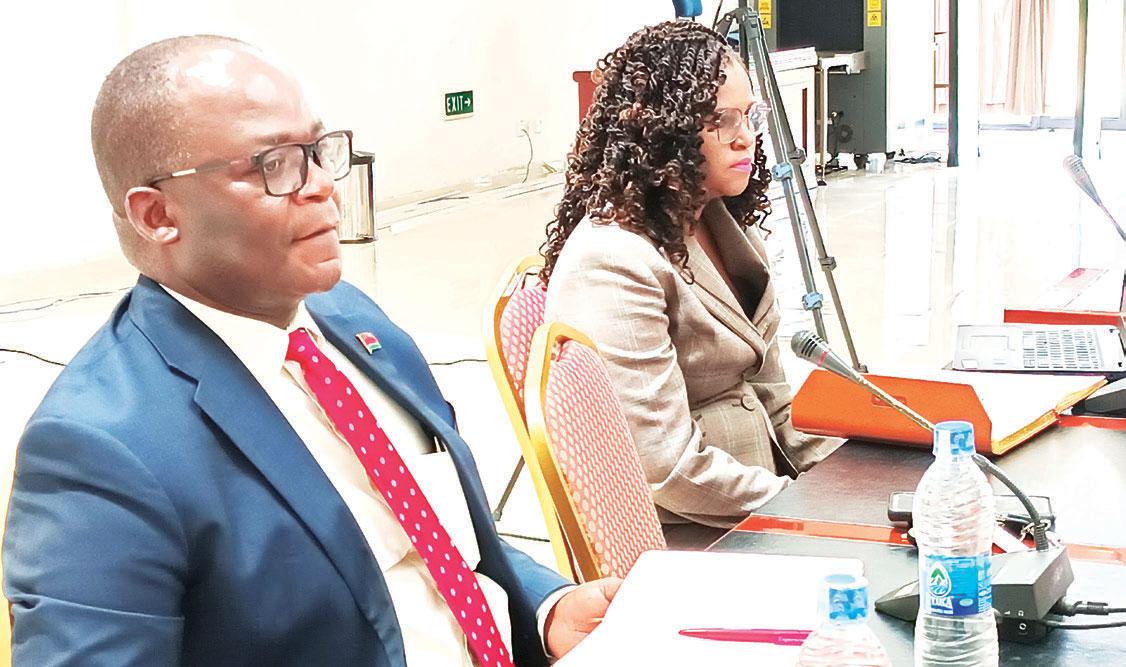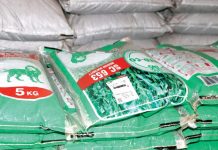Africa-Press – Malawi. The Malawi Confederation of Chambers of Commerce and Industry (MCCCI) Thursday admitted that the private sector is equally to blame for the problem of forex shortage in the country. He said private sector players have, to some extent, been weak in generating the much needed foreign exchange to meet Malawi’s import needs.
Speaking after appearing before the Budget and Finance Committee of Parliament in Lilongwe, MCCCI Chief Executive Officer Chancellor situation on challenges such as unreliable power supply. Kaferapanjira blamed the
The admission by MCCCI comes at a time Malawi’s Gross Official Reserves continue to shrink, sinking to $304.65 million, or 1.22 months of import cover, as at the close of 2022, down from $338.87 million, or 1.36 months of import cover, on November 30 2022.
In almost all the economies across the world, the generation of forex has been the responsibility of the private sector. However, in Malawi, private sector players have been in the forefront lamenting the shortage of United States dollars in the economy.
Kaferapanjira admitted that the responsibility of forex generation lies in the hands of the private sector but that the local industry can only effectively play that role in the medium to long term.
“Indeed, foreign exchange should be generated by the private sector and that is why we are saying ‘give us the power’ so that we are able to manufacture goods and export them.
“Give us electricity without necessarily charging maximum demand when electricity is not supplied, which is now the case, and, then, we will manufacture [products] and generate foreign exchange,” Kaferapanjira said.
Currently, Malawi exports goods worth $1 billion per annum but imports merchandise amounting to $3 billion. According to Kaferapanjira, the trade gap should be filled by promoting import substitution.
“That’s why we asked for a number of incentives for companies that manufacture for the local industry but also for exports so that we are reducing the demand for imports and also promoting exports.
“The private sector is saying, ‘in the medium Economic Monitor by the World Bank, Tchereni said it was worrying to note that the so called private sector players are also in the forefront lamenting shortage of forex.
“The question is, who do they want to generate the forex? It should be them. The people in the corporate world must be giving us the forex—that’s their business— and not complaining that there is no foreign exchange and therefore they are not in business,” Tchereni said.
In its presentation to the Budget and Finance Committee Thursday, made by Director of Policy and Advocacy Madalitso Kazembe, MCCCI said it has proposed that government should come up with a Special Purpose Vehicle/Industrial Development Fund in the 2023-24 budget to provide patient capital specifically targeting investments in the manufacturing sector.
Kazembe argued that boosting manufacturing would be an ideal way of fueling forex generation and promoting import substitution. The private sector mouthpiece said the Industrial Development Fund should be made available for the production of products that can easily be manufactured within the country, especially those that can be exported or will substitute regular imports.
The chamber said special incentives should be provided to manufacturing entities to encourage investment in such industries, adding that the government should provide tax incentives to manufacturing and processing industries that use a substantial portion of local inputs in their production.
Budget and Finance Committee of Parliament acting Chairperson Ralph Jooma urged the MCCCI to come up with a cost-benefit analysis of what the various tax incentives demanded would bring to the nation. According to Jooma, the analysis would help the committee come up with an informed position regarding the incentives.
For More News And Analysis About Malawi Follow Africa-Press






